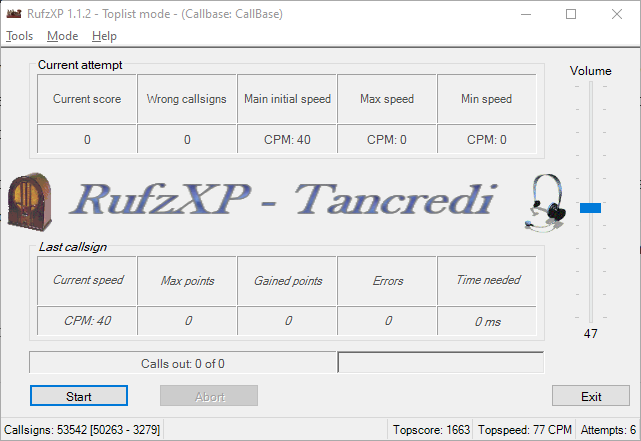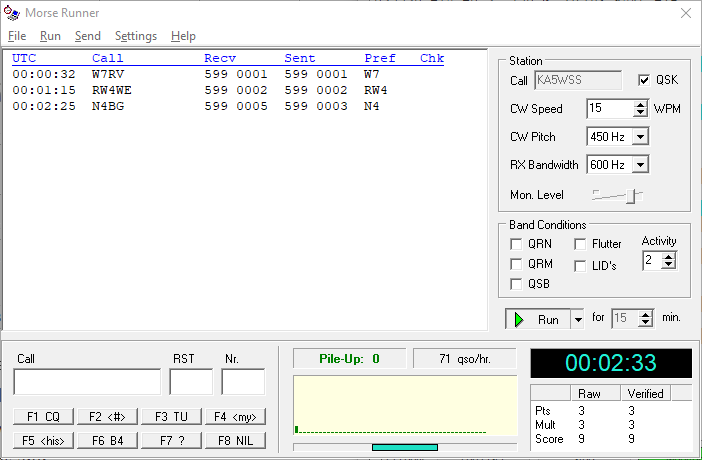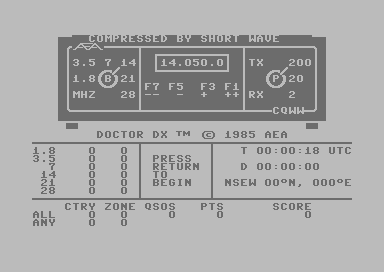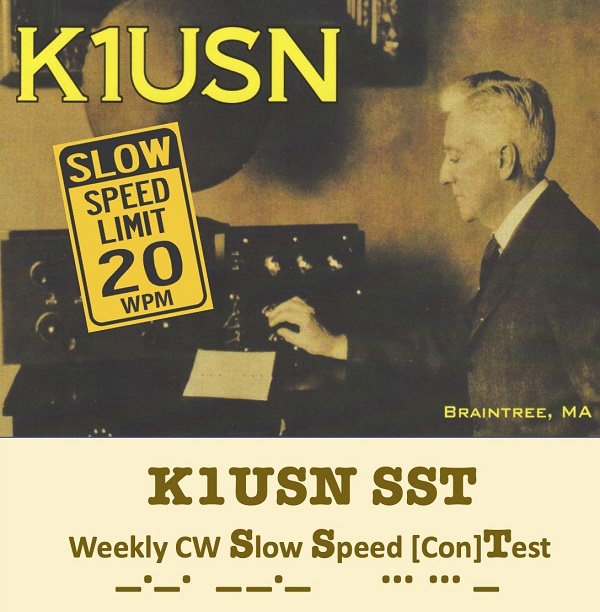One of my “resolutions” for 2022 was to get back into CW operating. Though I had never forgotten Morse Code it had been decades since I’d last made any CW contacts of note.
When I was first getting started in Ham Radio there was still a Morse Code requirement to get licensed. I incorrectly predicted I would never be able to learn it. But I eventually did and got my Novice license in 1985. I made a lot of CW contacts as a Novice and Tech. I continued to do so when I upgraded to General and Advanced, though less frequently. A quick look through my logbook showed those CW contacts last occurred in 1996!
In November and December of last year I started to work with some software programs designed to get my code speed and confidence up. At first I was most worried about my code speed, so I installed RufzXP. This handy tool sends random callsigns and increases or decreases the sending speed depending upon how accurately you copy them. Groups have held code speed competitions with the software to see who could copy the fastest.

Eventually I wanted some more “real world” practice before hopping on the bands. I found Morse Runner particularly useful for this. It simulates the CQ WPX contest by having sometimes multiple stations answering your CQs. You interact with those stations like you would in a normal contest QSO. The controls are similar to many popular logging programs.

The code speed, tone, maximum number of calling stations at any time and simulated band conditions (noise, fading, interference) are all possible with this application. That makes it easy to dial up the realism and chaos of a contest environment at your own pace. And no one will think you’re a lid while you learn the ropes again!
This reminds me of another Contest simulator from the 1990s. Doctor DX was a plug in cartridge for the Commodore 64 that simulated a CW DX contest. It was not as powerful as Morse Runner. But the developers of Doctor DX performed a minor miracle to get that implemented on such a limited capability platform.

After spending a few weeks pretending to make contest QSOs on Morse Runner I finally decided to bite the bullet and get on the air. Thankfully, there was a group which not too long ago initiated a now bi-weekly slow speed event which made this easy. The K1USN Radio Club sponsors the Slow Speed (con)Test (SST). on Sundays and Fridays, each lasting just one hour. The exchange is simple, just your name and state. Participants are supposed to keep sending speeds at 20 Words Per Minute (WPM) or lower.

On December 10th I made my first set of CW contacts in perhaps 25 years. In the span of two months I’ve made 59 contacts and confirmed 17 states in the process. It’s not many, but I’ve made steady progress on a weekly basis and things are getting easier and easier.
And yes, this means I’ll have more awards to shoot for. My first goal will be to acquire Worked All States CW. There are plenty of others after that to keep me busy.